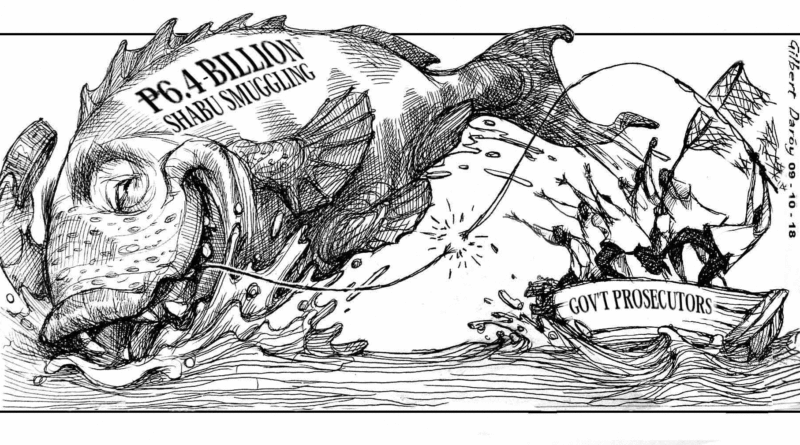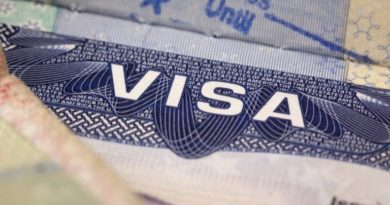OP ED EDITORIAL & CARTOONS: MANILA – Lurching economy
At their best, the marketplace for foreign exchange, stocks and bonds can serve as beacons that point stakeholders toward opportunities that could be exploited, or issues that need to be addressed.
In the case of the Philippines, last week’s meltdown called attention, in no uncertain terms, about local problems that demand the most urgent attention from policymakers to prevent things from getting worse.
The numbers say it all: over P400 billion in stock market value lost in the last four trading days, and the peso falling to its weakest in almost 13 years.
To make things worse, the latest surveys of the Bangko Sentral ng Pilipinas showed businessmen and
consumers being mostly pessimistic about their current and near-future prospects.
Government critics have scored the Duterte administration for missteps and blind spots that have led to the local economic situation seemingly getting out of hand, especially in terms of the nine-year-high inflation rate, now the highest in Southeast Asia, that has painfully eroded the purchasing power of the average Filipino.
Government policymakers, on the other hand, tend to dismiss such outside criticism and blame the current troubles on external factors instead. Economic managers, in particular, have highlighted the role of the economic crises in Turkey and Argentina, and the trade tensions between the United States and China, as the main reason for the weak local markets.
President Rodrigo Duterte himself has taken to blaming surging local prices on, first, the US-China trade war being stoked by US President Donald Trump, and then later on rising interest rates in the world’s largest economy.
Both can only be accepted as correct by using extremely creative economic logic; the administration’s economic managers have repeatedly stressed that the country’s inflation woes are due to high prices of imported fuel and the rice shortage.
The truth is that the Philippine economy is afflicted with a perfect storm of unpreventable adverse developments abroad, and completely preventable bad news at home.
ADVERTISEMENT
Rising international crude oil prices are beyond the ability of a small market like ours to influence, but local taxation policies and consumption patterns aren’t.
The peso’s weakness, caused by the flight of investors to higher yields abroad, cannot be stopped. But the government can make them think twice by improving local economic prospects.
Fund managers cannot be prevented from dumping their investments in emerging markets en masse, but decisive execution of long-term structural reforms can make them give the local economy a long hard look and, possibly, not lump the Philippines with its more vulnerable peers.
There are elements that are beyond the influence of local policymakers. But there are many more that are within their control.
After starting off in the right direction last month — a decisive rate hike by the central bank, a strong push by the administration toward rice tariffication, and other measures meant to provide immediate relief to less affluent consumers—economic managers are now being challenged by financial markets to follow through on their initial moves.
In doing so, however, they must also resist the temptation of easy populist moves used by previous administrations, like ordering state pension funds to prop up the stock market, flirting with capital curbs or, the most dangerous of all,
ordering price and other state controls beyond what are warranted.
Filipinos deserve to have the immediate causes of the current economic malaise addressed. But the economy’s broader health also demands that the Duterte administration provide a long-term focus and a firm resolve to ensure that the growth trajectory remains stable.
The nation can do with less grubby politicking from Malacañang, and more rational energy and urgent concentration directed at the lurching economy.
Philippine Daily Inquirer / 05:09 AM September 10, 2018
7.1. Pathetic gimmicks – D. Tribune – Unholy alliance

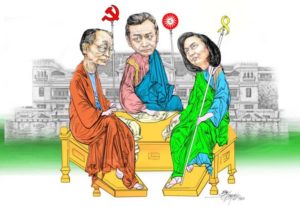
7.2. Manila Bulletin – The end is near
BUSINESS BEAT By MELITO SALAZAR JR.

History tells us that the end of a regime is marked by economic and social chaos as the ruling class holds on to power by trying to decimate the opposition or stage “shows” to divert the people’s attention from their daily problems. The attempt of the Duterte administration to void the amnesty granted to Senator Trillanes by President Benigno Aquino III and Congress is a desperate move by an administration that knows time is running out.
The anti-drug campaign is not succeeding as huge amounts of shabu are still coming in, reflective of a failed strategy that targeted addicts rather than the big suppliers. The anti-corruption drive is catching top officials who are allowed to fade away rather than be charged in court. Some are resurrected in other government positions. It is coincidental that the arrest order for Senator Trillanes is issued as he presides in a Senate hearing on how Solicitor General Jose Calida’s family security agency has bagged millions in contracts with government agencies.
Recent statements of President Rodrigo Duterte bolster the belief that he is getting tired and frustrated of running the government. Yet he can not step down because he does not want his constitutional successor, Vice President Leni Robredo, to take over. Whatever his musings, the military will not succumb to any succession moves that are unconstitutional. The only way is to have the Presidential Electoral Tribunal which is also the Supreme Court, within the 41 days of the term of a chief Justice whose previous votes in the Supreme Court have favoured the Marcos family or have been consistent with the wishes of the President, come up with a decision finding Senator Bongbong Marcos as the rightful winner of the vice-presidential elections. Then President Duterte and the country can finally have a sorely needed rest.
To prevent any opposition to this plan, Senator Trillanes must be imprisoned, joining the only other vocal senator, Leila de Lima. Conveniently all his accusations of the Duterte bank accounts (easy for the President to dispute charges by issuing an authorisation for all banks in the Philippines to reveal his bank accounts and balances), association of Duterte family in smuggling, corruption of top officials like Solicitor General Jose Calida will be silenced. We have seen how the guards of Senator De Lima will cough in unison to drown out her statements. Will there be any senators as brave as these two to aggressively fight the Duterte administration and risk imprisonment?
Even media seems to be walking on egg shells. In the case of the amnesty, many accepted the presidential proclamation as voiding the amnesty when it should have been properly reported as an attempt to void the amnesty. How many in media carried the statement of former President Benigno Aquino III? Have the Duterte attacks and threats against the media finally succeeded in toning down the media coverage of the opposition?
Yet the best of plans can fail. The daily struggles as inflation adds to the misery of the people will force the administration to hold off these political moves. It must deal with the economy. Otherwise the end will not just be near. It will be the end.
7.3. The Manila Standard – You’re still alive, aren’t you?
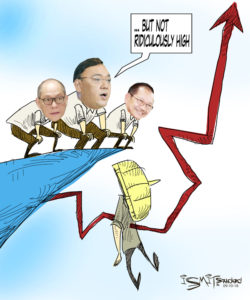
7.4. The Manila Times – TRILLANES UNDER PROTECTION OF SENATE
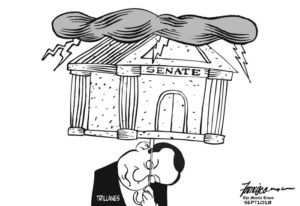
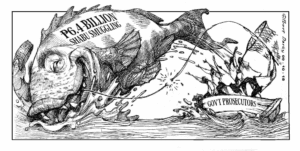
7.6 The Philippine Star – Everything but the TRAIN
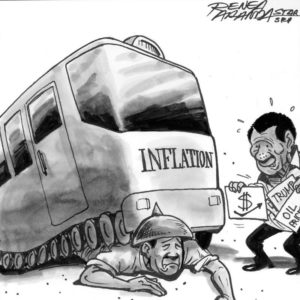
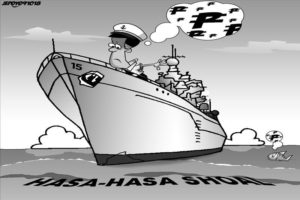

8.0. The Straits Times

The Straits Times says:
Dangerous upping of trade war stakes
.
President Donald Trump has dramatically raised stakes in the months-long trade war with China by threatening to levy tariffs on all Chinese imports unless Beijing relooks its economic, trade and technology policies.
In the first two rounds of tariffs, the United States imposed duties on US$50 billion (S$69 billion) worth of Chinese goods, with Beijing responding in kind. Mr Trump’s remarks last Friday involve another US$267 billion worth of products which come on top of the pending third round impacting US$200 billion.
TO READ THE FULL ARTICLE: https://www.straitstimes.com/opinion/st-editorial/dangerous-upping-of-trade-war-stakes
.
 All photographs, news, editorials, opinions, information, data, others have been taken from the Internet ..aseanews.net | [email protected] |.For comments, Email to :D’Equalizer | [email protected] | Contributor
All photographs, news, editorials, opinions, information, data, others have been taken from the Internet ..aseanews.net | [email protected] |.For comments, Email to :D’Equalizer | [email protected] | Contributor

